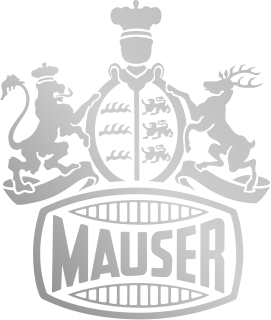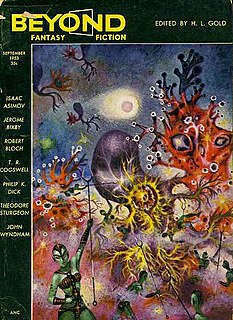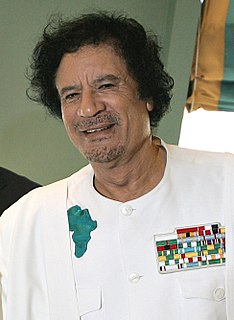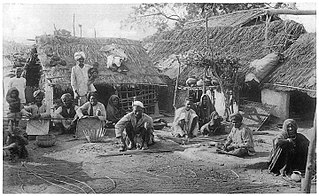Plot summary
Western society is split up into nine castes, from Lower-Lower to Mid-Lower all the way up to the privileged Upper-Upper. Mauser himself was born a Mid-Lower. Ambitious, he had chosen one of the few professions, Category Military, where upward mobility was still a reasonable possibility.
To prevent any chance of a ruinous war between the West and the Sov-world, the Universal Disarmament Pact had restricted all militaries to pre-1900 technology. Gradually, powerful corporations began settling business disputes by hiring troops to fight real battles (fracases) on one of many military reservations. This served a dual purpose: to maintain a military well-honed by actual combat and to provide the decadent general population with a diversion. The life-and-death struggles are so popular that they are televised.
Mauser had worked his way up to captain and Middle-Middle status after many years of effort. When upstart Vacuum Tube Transport finds itself forced into an expensive, division-sized fracas with Continental Hovercraft, he sees his opportunity. He signs up with the underdog, even though the much wealthier Continental is able to hire the best soldiers available, including Marshal "Stonewall" Cogswell, the finest commander in the business. Mauser tells Baron Haer, the head of Vacuum Tube, that he can engineer an improbable victory with a gimmick he has been working on for a long time; in return, he expects the baron's support which, in conjunction with his anticipated popularity with fracas fans, should be enough to get him promoted into the Upper caste. The baron's son, Bart, scoffs at the undisclosed idea, but the baron is desperate for experienced officers and hires him.

A division is a large military unit or formation, usually consisting of between 10,000 and 20,000 soldiers. Infantry divisions during the World Wars ranged between 8,000 and 30,000 in nominal strength.
When the conflict starts, Mauser takes off in a glider, something no one else had thought of before. Powered aircraft had not been invented before 1900, but gliders had. From his vantage point, Mauser can see where all of the enemy forces are positioned. This information makes Cogswell's situation hopeless and he recommends to his employer that he settle quickly.
When Mauser returns in triumph to Vacuum Tube headquarters, he learns that Baron Haer has died of natural causes. His son does not have the deceased man's political influence, and has also invested heavily in the rival company, assuming his side will lose, so Mauser is out of luck. However, his unusual interest in the state of western civilization attracts the interest of Dr. Nadine Haer, the late baron's attractive, reform-minded daughter.
An army or land force is a fighting force that fights primarily on land. In the broadest sense, it is the land-based military branch, service branch or armed service of a nation or state. It may also include aviation assets by possessing an army aviation component. In certain states, the term army refers to the entire armed forces. Within a national military force, the word army may also mean a field army.

A mercenary, sometimes known as a soldier of fortune, is an individual who takes part in military conflict for personal profit, is otherwise an outsider to the conflict, and is not a member of any other official military. Mercenaries fight for money or other forms of payment rather than for political interests. In the last century, mercenaries have increasingly come to be seen as less entitled to protections by rules of war than non-mercenaries. Indeed, the Geneva Conventions declare that mercenaries are not recognized as legitimate combatants and do not have to be granted the same legal protections as captured soldiers of a regular army. In practice, whether or not a person is a mercenary may be a matter of degree, as financial and political interests may overlap, as was often the case among Italian condottieri.
Thomas Michael "Mad Mike" Hoare is a British mercenary leader known for military activities in Africa and his attempt to conduct a coup d'état in the Seychelles.

Mauser, begun as Königliche Waffen Schmieden, is a German arms manufacturer. Their line of bolt-action rifles and semi-automatic pistols have been produced since the 1870s for the German armed forces. In the late 19th and early 20th centuries, Mauser designs were also exported and licensed to a large number of countries which adopted them as military and civilian sporting firearms. The Mauser Model 98 in particular was widely adopted and copied, and is the foundation of many of today's sporting bolt action rifles.

Condottieri were Italian military leaders involved in classical formation battles, first as mercenary captains commanding free companies and later as generals of multi-national armies. In medieval Italian, condottiero meant "contractor" but the term later acquired the broader meaning of "military leader", also in reference to Italian Catholics serving as commanders for the Roman Catholic side during the Counter-Reformation.

Hessians were German soldiers who served as auxiliaries to the British Army during the American Revolutionary War and the Irish Rebellion of 1798.

The Mauser C96 is a semi-automatic pistol that was originally produced by German arms manufacturer Mauser from 1896 to 1937. Unlicensed copies of the gun were also manufactured in Spain and China in the first half of the 20th century.

John Robinson Pierce, was an American engineer and author. He worked extensively in the fields of radio communication, microwave technology, computer music, psychoacoustics, and science fiction. As a sideline to his professional career he wrote science fiction for many years under various names: John Pierce, John R. Pierce, and J. J. Coupling. Born in Des Moines, Iowa, he earned his PhD from Caltech, and died in Palo Alto, California from complications of Parkinson's Disease.

Batroc is a fictional supervillain appearing in American comic books published by Marvel Comics. Created by writer Stan Lee and artist Jack Kirby, the character first appeared in Tales of Suspense #75, 1966. He is a mercenary and a master of the French form of kick boxing known as savate. Writer Mark Waid described the character as ahead of his time, elaborating "He was a Jean-Claude Van Damme, but he was in the 1960s."

Ferdinand Ritter von Mannlicher was an Austrian engineer and small arms designer. Along with James Paris Lee, Mannlicher was particularly noted for inventing the en-bloc clip charger-loading magazine system. Later, while making improvements to other inventors prototype designs for rotary-feed magazines, Mannlicher, together with his protégé Otto Schönauer, patented a perfected rotary magazine design, the Mannlicher–Schönauer, which was a commercial and military success.

The T'au Empire is a faction of fictional alien species that appears in the tabletop strategy wargame Warhammer 40,000, in which they are a playable army.
The Dendarii Mercenaries are a mercenary organisation appearing in American writer Lois McMaster Bujold's Vorkosigan Saga series of science fiction works. They were founded by Miles Vorkosigan in The Warrior's Apprentice.

The allotment system was a system used in Sweden for keeping a trained army at all times. This system came into use in around 1640, and was replaced in the early 1900s by the Swedish Armed Forces conscription system. Two different allotment systems have been in use in Sweden; they are the old allotment system and the new allotment system, the latter often referred to as just "the allotment system". The soldiers who were part of these systems were known as "croft soldiers" due to the small crofts allotted to them.
Like piracy, the mercenary ethos resonates with idealized adventure, mystery, and danger, and appears frequently in popular culture. Many are called adventurers, filibusters, soldiers of fortune, gunslingers, gunrunners, ronin, and knights errant.
The Solvay Process Company (1880–1985) was a pioneer chemical industry of the United States in the manufacture of soda ash and a major employer in Central New York. The company was the origin of the village of Solvay.
Sergeant Konstantin Bothari is a character in the Vorkosigan Saga of science fiction novels by Lois McMaster Bujold. He is a deeply disturbed foot soldier and a classic example of an anti-hero.

"The Wall Around the World" is a science fiction short story by American writer Theodore Cogswell, first published in the magazine Beyond Fantasy Fiction in 1953. It is set in a world where magic is taken for granted and technology is banned.

Muammar Gaddafi (1942–2011) attributed the protests against his rule to people who are "rats" and "cockroaches", terms that have been cited by Hutu radicals of the Tutsi population before the Rwanda genocide began, thus causing unease in the global community. Gaddafi accused his opponents as those who have been influenced by hallucinogenic drugs put in drinks and pills. He specifically referred to substances in milk, coffee and Nescafe. He claimed that Bin Laden and Al-Qaeda were distributing these hallucinogenic drugs. He also blamed alcohol, which had been banned in Libya shortly after he took power in 1969.
Gaddafi also claimed that the protests against his rule were a "colonialist plot" by foreign countries to control oil and "enslave" Libyan people. He had asserted that he will chase down the protesters and cleanse the country "house by house". Gaddafi had also stated that "those who don't love me do not deserve to live". On 22 February 2011, Gaddafi mentioned China’s 1989 Tiananmen Square massacre which crushed the democratic movement led by students and threatened widespread killings against dissidents in an appearance on state television as the revolt against his regime consolidated its grip on the eastern half of the country and spread to the suburbs of Tripoli.

There is evidence of mercenaries being hired in Ancient Greece from the 6th century BCE. The tyrants of that time hired bodyguards from other city-states. It is not known if earlier Greek armies and navies, such as the Minoans and Mycenaeans, used mercenaries.


















